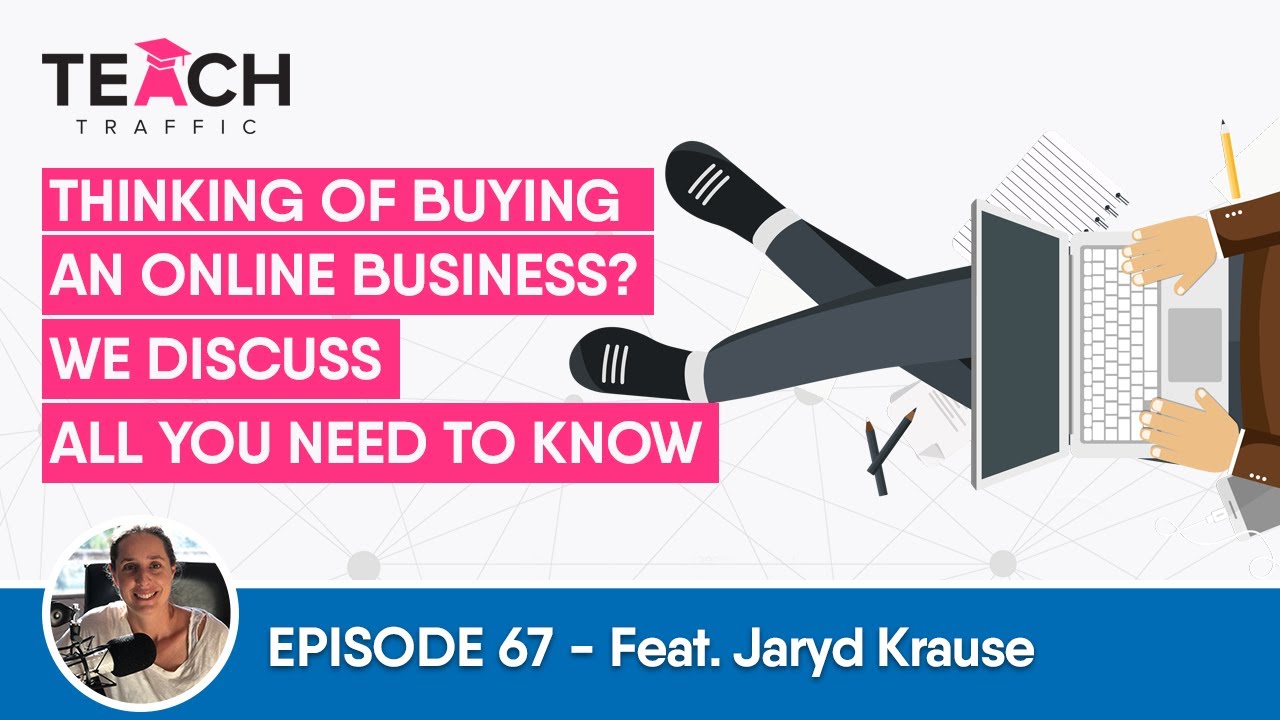Running an online business and making money online is no easy feat. In addition to being responsible for all of the day-to-day operations, you also have to worry about marketing, sales, and keeping your customers happy. While being your own boss has its perks, it also comes with a lot of responsibility.
Starting from scratch can be especially daunting, which is why many people choose to buy an existing online business instead. Not only does this give you a head start, but it also allows you to tap into an existing customer base and revenue stream.
However, buying a business is a major decision that shouldn’t be taken lightly. Whether it’s an online store or a SaaS business, there are a lot of factors to consider, and it’s crucial that you do your due diligence before making any offers.
In this article, we’ll give you a step-by-step guide on how to buy an online business. We’ll cover everything from identifying potential targets to negotiating the purchase price. By the end, you’ll have all the information you need to make a smart, informed decision.
Step 1: Define Your Criteria
The first step in buying an established business is to define your criteria. What kind of online business are you looking for? What industry does it need to be in? How much revenue should it generate?
Answering these questions will help you narrow down the field and make the search process for a business opportunity more efficient. Keep in mind that there are no right or wrong answers here. It’s all about what you’re looking for in your own online business.
Step 2: Identify Potential Targets
Once you know what you’re looking for, it’s time to start identifying potential targets. There are a few different ways to look for online businesses for sale:
- Online marketplaces: There are a number of marketplaces that allow you to buy and sell online businesses, such as Flippa and FE International. These can be great places to find businesses for sale, but be sure to verify and analyze before making any offers.
- Business brokers: Business brokers specialize in helping people buy and sell businesses. They’ll often have a portfolio of established businesses that are currently on the market, so they can be a great resource for finding potential targets.
- Networking: If you know anyone who owns an online business, they may be willing to sell it to you if the price is right. It never hurts to ask around and see if anyone you know has a business that meets your criteria.
Step 3: Verify the Business’s Financials
Once you’ve identified a potential target, it’s time to verify the business’s financials. This is one of the most important steps in the process, as it will help you determine whether or not the business is actually profitable.

There are a few ways to verify financials:
- Review tax returns: The best way to verify the profitability of online businesses is to review their tax returns. This will give you an accurate picture of how much revenue the business generates and what its expenses are. Keep in mind that some businesses may try to inflate their numbers by including personal expenses, so be sure to review everything carefully.
- Look at bank statements: Another way to verify financials is to look at the bank statements of an online business. This will show you how much money is coming in and going out on a monthly basis. Be sure to compare this with the tax returns to see if there are any discrepancies.
- Ask for proof of revenue: If you’re unable to verify the financials yourself, you can always ask the seller for proof of revenue. This could be in the form of invoices, bank statements, or tax returns. Be sure to have a professional accountant review everything before making an offer.
- Analyze financial reports: If the established business you’re interested in is publicly traded, you can access its financial reports. These will give you a detailed picture of the company’s revenue, expenses, and profitability.
Step 4: Analyze the Business’s Operations
In addition to verifying the business’s financials, you’ll also want to analyze its operations. This will help you understand how the business makes money and what kind of shape it’s in.
There are a few things you should look at when analyzing a business’s operations:
- The product or service: What does the online retailer sell, and is there a market for it? How are its online sales? Are there multiple sales channels of a single one? Be sure to research the industry and understand the potential for growth.
- The business model: What is its business model? How does it make money? Is it sustainable in the long term? What is its business plan? These are all important questions to answer before making an offer.
- The customer base: Who are the business’s customers? Are they loyal and engaged, or do they tend to churn quickly? Are there potential customers you can target later? The answers to these questions will have a big impact on the business’s future profitability, so market research is a must.
- The team: Does the business have a strong team in place, or will you need to hire new employees after purchase? If you’re going to need to invest in new staff, this will impact your bottom line.
- The technology: Is the business’s technology up-to-date, or will you need to make significant investments in this area? Technology can be a major expense, so it’s vital to factor this into your decision.
Step 5: Determine the Business’s Reputation
Another important factor to consider is the business’s existing reputation. This will have a big impact on its future success, so it’s crucial to understand what people are saying about it.
There are a few ways to determine a business’s reputation:
- Customer reviews: One of the best ways to gauge a business’s reputation is to read customer reviews. These can be found on sites like Google and Yelp. Be sure to read both positive and negative reviews to get a well-rounded picture.
- Industry awards: Another way to assess a business’s reputation is to see if it has won any industry awards. This shows that the company is respected by its peers and considered an industry leader.
- Online presence: You should also take some time to assess the business’s online presence. This includes things like its website, social media accounts, and blog posts. A strong online presence can be indicative of a good reputation.
Step 6: Evaluate the Business’s Growth Potential
Once you’ve verified the company’s financials, analyzed its operations, and determined its reputation, it’s time to evaluate its growth potential. This will help you understand how much upside there is in the business and what kind of return on investment you can expect.

There are a few things you should look at when evaluating a business’s growth potential:
- The industry: One of the first things to consider is the industry that the business operates in. Is it growing rapidly, or is it stagnant? Understanding the industry landscape will help you assess the business’s future prospects.
- The customer base: Another factor to consider is the size and composition of the business’s customer base. Is it diversified, or does it rely heavily on one type of customer? A diversified customer base is typically less risky than a concentrated one.
- The team: The quality of the business’s team will also have an impact on its growth potential. Do they have the skills and experience necessary to take the business to the next level? If not, you may need to invest in new staff after purchase.
- The technology: Finally, you’ll want to assess the state of the business’s technology. Is it up-to-date, or will you need to make significant investments in this area? Investing in technology can be incredibly expensive, so make sure you have the resources.
Step 7: Negotiate the Purchase Price
Once you’ve decided that you want to buy the business, it’s time to start negotiating the purchase price. This is one of the most important steps in the process, as it will determine how much money you’re willing to pay for the business.
There are a few things to keep in mind when negotiating the purchase price:
- The business’s value: The first thing you’ll need to do is determine the business’s value. This includes its revenue, profitability, growth potential, and reputation. Be sure to have a professional appraiser help you with this process.
- Your budget: Once you know how much the business is worth, you’ll need to set a budget for yourself. How much money are you willing to spend on the business? This will help you determine your bottom line in negotiations.
- The seller’s expectations: It’s also essential to understand the seller’s expectations. What are they looking for in a buyer? What kind of price are they hoping to get? Knowing this information will give you an advantage in negotiations.
- Your leverage: Finally, you’ll need to assess your leverage. Do you have any bargaining chips that you can use to negotiate a lower price? For example, if you’re the only interested buyer, the seller may be more willing to accept a lower offer.
Step 8: Get Professional Help
Buying a business is a major decision, and it’s imperative that you get professional help before making any offers. There are a lot of moving parts in the process, and it’s crucial that everything is done correctly.
There are a few professionals you should consider working with when buying a business:
- Accountant: An accountant can help you verify the business’s financials and understand its tax situation. This is an important step in the process, as it will help you determine whether or not the business is actually profitable.
- Attorney: It’s also a good idea to work with an attorney. They can help you review the purchase agreement and make sure that everything is in order. This protects your interests and ensures that you’re getting what you’re paying for.
- Business broker: If you’re having trouble finding businesses for sale, you may want to consider working with a business broker. They specialize in helping people buy and sell businesses, so they may be able to find a great deal for you.
- Contact me!I have years of experience purchasing online businesses, and I am more than happy to share my knowledge and expertise with others.
Step 9: Make an Offer
Once you’ve gathered all of the information mentioned above, it’s time to make an offer on the business. This is usually done through a written proposal that outlines your terms and conditions. Be sure to have your lawyer review the proposal before sending it to the seller.
If the seller accepts your offer, you’ll enter into a purchase agreement. This is a legally binding document that outlines the terms of the sale. Be sure to have your lawyer review this carefully before signing it.
After the purchase agreement is signed, it’s time to finalize the deal. This usually involves transferring ownership of the business and paying the purchase price. Once everything is finalized, you’ll be the new owner of the business!
Pros and Cons of Buying an Existing Online Business

There are a lot of factors to consider when buying an online business, including the following pros:
- You’ll have immediate access to customers: One of the biggest benefits of buying an existing business is that you’ll have immediate access to customers. This can be a major advantage if you’re starting from scratch, as it can help you get your business off the ground quickly.
- You can tap into existing revenue streams: Another benefit of buying an online business is that you can tap into existing revenue streams. This can provide a steadier stream of income than starting from scratch, which is especially helpful in the early stages of businesses. Additionally, it allows for more accurate financial projections moving forward since there is already historical data to draw from.
- You’ll benefit from an established reputation: If you buy a business that’s been around for awhile, you’ll benefit from its established reputation. This can be a major advantage, as it can help you attract new customers and build trust with your target market.
Now let’s take a look at some of the main disadvantages of buying an online business:
- You may have to deal with existing problems: One of the biggest disadvantages of buying an online business is that you may have to deal with existing problems. This could include things like outdated technology, poor customer service, or high employee turnover. Be sure to do your due diligence before making any offers.
- There may be hidden problems: Another downside of buying an existing business is that there may be hidden problems. For example, the financials may not be as strong as they seem, or the customer base may be less engaged than you thought. Be sure to do your due diligence before making any offers to avoid being blindsided later on.
- You may not be a good fit: Finally, it’s important to consider whether or not you’ll be a good fit for the business. Do you have the skills and experience necessary to run it successfully? If not, you may want to reconsider your decision.
Videos of me talking about how to buy a profitable online business;










Conclusion
Buying a profitable online business can be a great way to get started in entrepreneurship. It allows you to tap into an existing customer base and revenue stream, which gives you a head start over starting from scratch.
However, buying a business is a major decision that shouldn’t be taken lightly. There are a lot of factors to consider, and it’s crucial that you do your due diligence before making any offers, no matter if you’re looking for an online retailer, SaaS businesses, or advisory services.
In this article, we’ve given you a step-by-step guide on how to buy a successful online business. We’ve covered everything from identifying potential targets to analyzing the business model to negotiating the purchase price. By following these steps, you’ll be in a good position to make a smart, informed decision.





